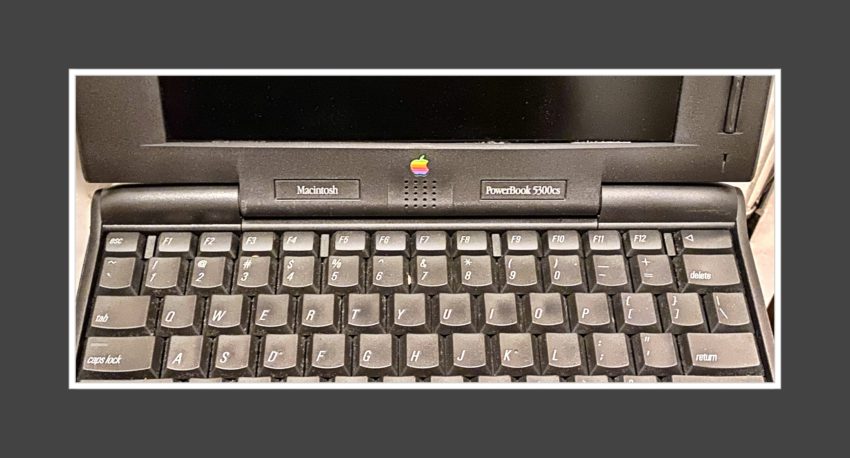
The tweet I published earlier this week about old technology lead me down another rabbit hole the last few nights. All this started with a review of equipment at work, some of which have been running non-stop for more than four years without a reboot. We are in the process of reviewing maintenance contracts and it seems everyone needs to get creative these days when it comes to pandemic capital spending and the lifespan of various technologies.
This got me thinking about the many computers I’ve had over the years, long-departed applications and obsolete storage formats. I remember my dad having paper punchcards at his job when I was little and over the course of my career, I’ve managed tape drives, 5.25-inch floppies, 3.5-inch floppies, Zip and Jaz media, CD-Rs, DVD-Rs, external spinning disk drives, SSD drives, thumb drives and various forms of cloud storage. The storage capacity on my current home workstation is insanely large compared to those earlier days, in physical form factors that are smaller, lighter and less expensive by unit than ever.
I’ve always tried to have multiple backups of my personal data in different formats, but it’s amazing how many files have made it this far in my life. Even for the weird, obsolete file formats, many of today’s applications have good importers and translators to open ancient files created with long-gone programs. Old video game ROM files from original arcade games can usually be emulated on current hardware (although I’m having trouble getting MAME to work on Big Sur). I came across this article talking about the shelf life of old game console cartridges from Atari, Mattel, Nintendo and others that still start up and run like the day they were first sold.
That article also talks about NASA’s Mars rover Curiosity and the software used to run multi-year, remote missions. What an amazing engineering and technology challenge! I look back to the multimedia CD-ROM golf guide that I produced in 1999 using the authoring tool mTropolis and old versions of Photoshop and Illustrator. While I still have a few copies of the CD laying around, I don’t think I have any machines that can actually run the guide. My current version of Photoshop (22.1), however, can open all of the original media files. I was also able to open my 1995 résumé file with a current version of Word (16.43) and rediscovered what was very likely my first email address:
- dkingsbu@vx.cis.umn.edu (check out the only match on Google)
Speaking of email, this is probably the only tool I’ve used over the years that I don’t really archive. I would hazard a guess that most of the work emails I’ve written or received in previous jobs are long gone. Even the latest version of Outlook at my current job doesn’t tell me how many messages I have in my inbox any more – it’s just one long, infinite scroll. I’ve been using Google with my personal email domain for years (7.37GB out of a 15GB quota), but I rarely go back more than a month or two to look for things.
My daughter asked me about JPEG and PNG tonight and it’s really nice that these formats have been around for a while now, working on many different platforms and with many different applications. Keeping these files organized is a seemingly endless task, but at least there is little concern about losing access (as long as my backups remain solid). I do occasionally run across old music files that have strange DRM tied to them, but it’s easy enough to replace those. I won’t get into the vinyl > cassette > CD or Beta/VHS > DVD > Blu-ray conversation here, as it’s depressing how many times I’ve purchased and re-purchased the same content over the years.
I’ve been publishing this site for almost 15 years now and would love to have it available to future generations of my family. Web publishing isn’t free, though, and even with the recent switch to AWS, it’s still something that requires time and money to keep online. I should be mirroring the site on my workstation (which I used to do), so that if the public site eventually goes dark, at least the family could run it locally. WordPress, PHP and AWS upgrades (not to mention the issues around things like the RedHat/CentOS dustup this week) mean that online sites can’t really be “frozen” without active maintenance.
Website durability might be my hardest nut to crack…
